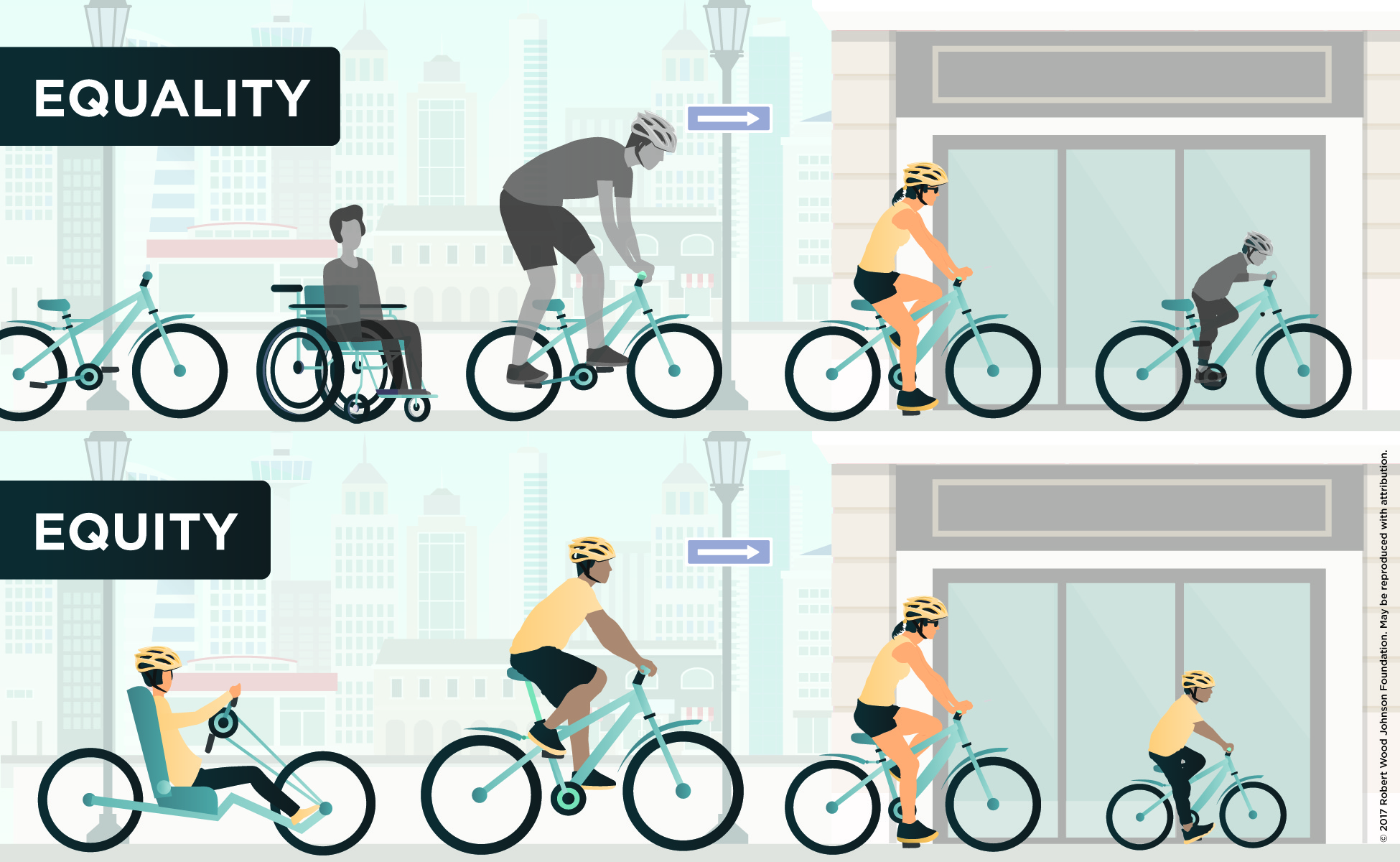Health equity means that everyone has a fair and just opportunity to be as healthy as possible. This requires removing obstacles to health such as poverty, discrimination, and their consequences, including powerlessness and lack of access to good jobs with fair pay, quality education and housing, safe environments, and health care.

This graphic created by the Robert Wood Johnson Foundation (@RWJF) does a great job of illustrating what it looks like when equality is deemed the solution. See how one size doesn’t fit all?
Health equity is meeting people where they are and making sure they have access in a way that makes sense to them. Take COVID vaccines for example. Given that not everyone has access to the internet, are we providing equity to all if we only provide only an online registration system? No. Is the COVID vaccine only available at the health department? No way. We work with community partners to ensure that vaccines are accessible to all based on the needs of those who wish to receive them -- by pharmacies, doctor’s offices, hospitals, in homes, at churches, and at schools. In this way, issues like not being able to schedule a vaccine during regular working hours is not a barrier. When pharmacy partners extend their hours so that those who work during the day can still receive a vaccine, that is equity at work. It is just one way equity is changing how we do things.
Those of us in public health employ equity in our daily work to make sure that lack of access, communication, or other barriers do not prevent people getting the health care they need. We use it when we make special accommodations for employees and when we plan events.
Equity in the West Piedmont Health District
Lack of equity has been declared a public health emergency. All citizens deserve equitable access to resources and information to help them achieve their health and quality of life goals. In the West Piedmont Health District, we are changing the way we do things. A full-time equity coordinator is working to ensure that the process of learning about community needs includes ALL citizens. In Martinsville, an equity collaborative is at work on a community needs assessment and improvement plan that is inclusive. Survey instruments and protocol have been created to meet people where they are and to understand the barriers they face. Community health workers have been embedded into low-income communities, those of color, those who have special health concerns or barriers. These workers are listening and understanding needs, linking resources to help people have more access to services, and building programs that help eliminate barriers.
